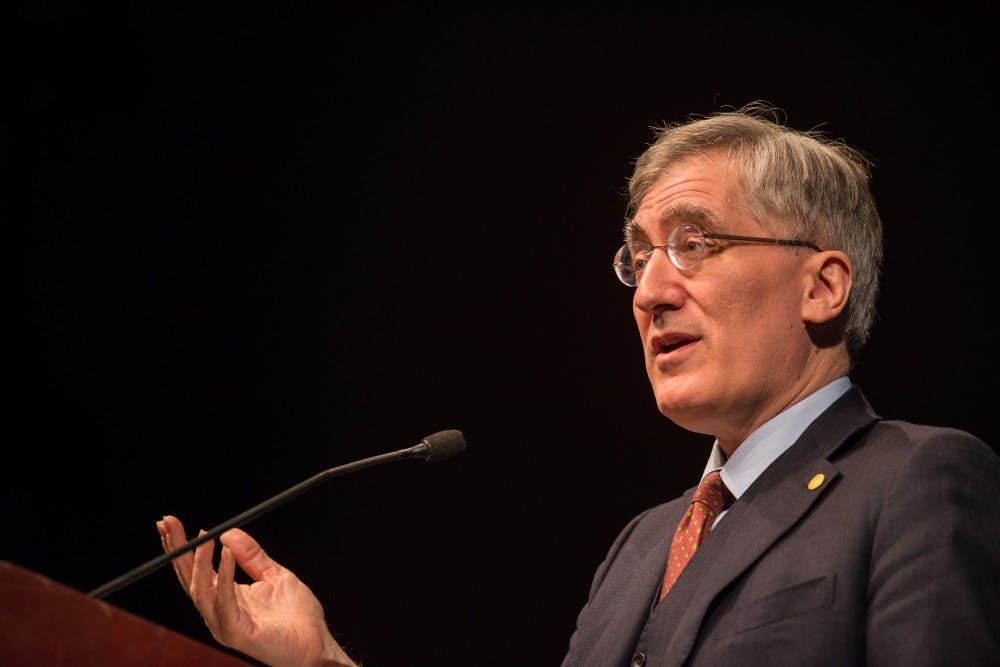Robert P. George, Professor of Politics, recently launched an online petition calling upon U.S. News & World Report to take “freedom of speech and viewpoint diversity” into their rankings of institutions of higher education.
“[T]he quality of higher education depends crucially on freedom of thought, expression, and discussion and on students’ encountering a wide range of viewpoints and perspectives, especially among their teachers,” George wrote on the petition page.
In an interview with The Daily Princetonian, George further explained his reasoning behind the petition.
“It is striking to me — it really jumps off the page at me — that U.S. News & World Report does not factor in campus climate, freedom of speech, or the willingness of the university to expose students to a wide range of viewpoints. I launched the petition in the hopes of persuading U.S. News that this is something parents and students should and do care about,” George said.
George is also the director of the James Madison Program in American Ideals and Institutions. The program is dedicated to “exploring enduring questions of American constitutional law and Western political thought,” according to its website. Every year, the program hosts a number of scholars to “contribute to the intellectual life of the Department of Politics and Princeton University.” The scholarly work and stated opinions of some of these individuals have sparked controversy at the University in the past.
“Students, faculty, and staff need to be able to engage with anyone who is prepared to do business in the proper currency of intellectual discourse .... If someone is willing to defend a position using reasons, arguments, and evidence, then I think we should be willing to listen,” said George when asked about the role that free speech should occupy on college campuses.
Riley Heath ’20 said that although he supported the principle behind George’s petition, he did not believe that any change would come of it, even if U.S. News & World Report were to be persuaded about the impact of freedom of speech and viewpoint diversity on the quality of higher education.
“Freedom of speech is not solid to even qualitatively measure, let alone quantitatively. It is so subjective, too … Maybe the rankings could just focus on the diversity of faculty perspectives, but at the same time, I wouldn’t want the faculty to have to label their political views just so that we can analyze them all,” Heath said.

Heath is the co-founder and president of the Turning Point USA chapter at the University. Turning Point USA is technically a nonpartisan organization, but its membership is mainly comprised of people with conservative and libertarian beliefs. The chapter at the University has drawn attention in the past for its “Free Speech Ball” event and its hosting of Kyle Kashuv, a Parkland shooting survivor who opposes gun control measures, as a speaker in 2018.
“I would describe TPUSA as a pro-freedom activist group. We focus on issues like free speech, gun rights, and other Constitution-type things,” Heath said.
Shafaq Khan ’21, the co-president of the Princeton College Democrats, pointed out in an email statement that “freedom of speech, as we understand it today, finds its origins in progressive politics and the labor movement of the early 20th century.”
“I’ve come to realize that people come from radically different lived experiences and one of the biggest challenges is accommodating all of them in a respectful way. As a political leader and a democratic citizen, I have an ethical duty to listen and try to understand these lived experiences as best I can,” Khan said.

The petition is on Change.org. At the time of the publication of this article, it had 383 signatures.








